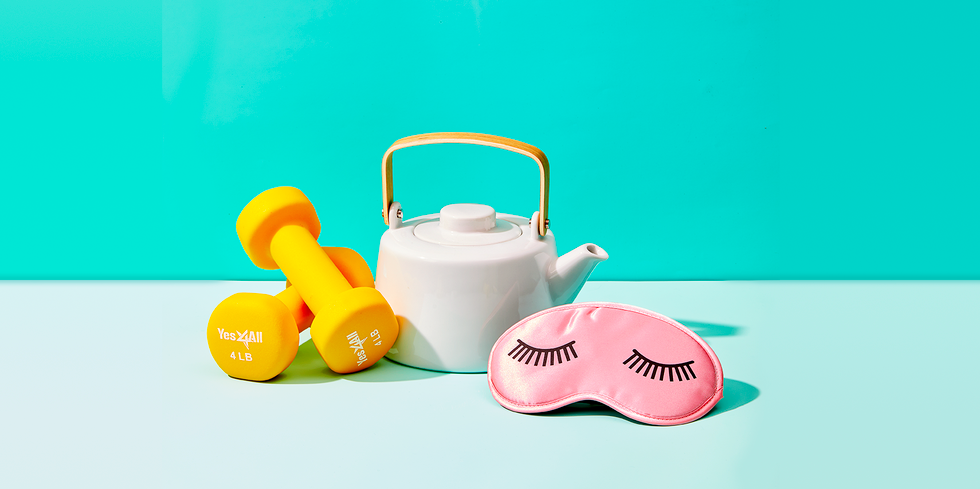
A Natural Approach to Balancing Your Hormones
Hormones are natural, chemical messengers of the body. They are molecules produced by our endocrine systems that send messages to various parts of the body. They influence our psychological and physical wellbeing in many ways. The most widely recognised cycles affected by hormones include hunger, blood pressure, sexual desire, state of mind, development, digestion, and reproduction.
Accordingly, it bodes well to acknowledge that even a slight hormonal imbalance can extensively affect our bodies, thought patterns and emotional responses. Whenever left unchecked, our hormonal imbalance influence can affect different parts of our wellbeing and prosperity. Tracking our hormonal flux throughout each month can add many positive benefits to our livelihood, such as taking a step back from our emotions when we recognise that the cause may be hormonal, giving our bodies time to slow down and rejuvenate when necessary, knowing when in the month our minds and bodies are clearest to make key decisions and being kind to ourselves when our hormones are doing that well-known dance within our bodies.
Causes of a Hormonal Imbalance
There are many different causes of hormonal imbalance in the body. Causes may differ depending on which hormones or glands are primarily affected. Common causes of hormonal imbalance include:
- hormone therapy
- certain medications
- cancer treatments such as chemotherapy
- tumours
- Endocrine gland disorders (pituitary, thyroid gland, pancreas etc.)
- tumours
- eating disorders
- stress
- injury
Hormonal Imbalance in Women
Causes of hormonal imbalance vary in both genders, but women experience several hormonal changes in their lifetime, principally during puberty, menstruation, menopause and pregnancy.
Women are at a greater risk of developing different hormonal imbalance disorders than men because of other endocrine organs and cycles.
Medical diseases causing irregular hormonal imbalances in women include:
- polycystic ovary syndrome (PCOS)
- birth control medications
- menopause
- primary ovarian insufficiency (POI)
- ovarian cancer
Symptoms of Hormonal Imbalance in Women
Symptoms of hormonal imbalance in women are very obvious sometimes and include:
- heavy, abnormal, or uncomfortable periods
- osteoporosis
- hot flashes and night sweats
- vaginal dryness
- breast tenderness
- acne
- uterine bleeding
- increased hair growth on the body parts
- infertility
- weight gain
- hair loss
- skin tags or abnormal growths
- clitoral enlargement
- PMDD and PMS
Hormonal Imbalance; How to Treat?
Our hormones are also engaged with each part of our wellbeing as we need them in certain sums for the body to work ideally. Individuals prone to hormonal imbalances can have enhanced predisposition to obesity, diabetes, coronary illness and other medical conditions. However, please be assured that hormonal imbalance can be balanced, monitored, regulated and managed.
There are numerous means we can take to help our hormones work optimally and for our best interest. Consuming nutritious food sources, practising mindfulness, and participating in other solid practices can improve our hormonal wellbeing.
Below we have assembled a selection of natural and reliable ways to re-balance the body's hormones.
Appreciate A Balanced Diet
Hormonal imbalance and diet are interrelated in many ways. One major drawback is that hormonal imbalance causes weight gain, and you cannot explain the causes. Good dieting propensities go far in guaranteeing our hormonal equilibrium is kept up. Specific food sources are known for unleashing ruin on the body's hormonal framework. These incorporate refined carbohydrates and sugars— the two of which are firmly identified with adiposity and insulin opposition.
A well-balanced eating regimen—filled with nutritious foods, vegetables, and proteins—will adequately hold the hormones within balanced limits.
Balance Hormones with Sleep
Get some sleep: Rest is fundamental to renewing the body and guaranteeing it recuperates in the wake of a day. While we rest, our oestrogen, insulin, and cortisol levels restore. The quality and amount of rest we get consistently will influence how our chemical groups respond.
Reliable, excellent rest that gives the body the reclamation it needs will manage hormones and improve our satisfaction. Adequate and quality sleep can help cope with hormonal imbalance, depression, anxiety, hormone imbalance, headache, and mood swings.
Manage Stress
Stress can unleash devastation on the levels of hormones within our body. Two significant chemicals influenced by pressure are cortisol and adrenaline, which is often referred to as epinephrine. Cortisol is known as "the pressure chemical" since it helps the body adapt to worries and anxieties about the future.
Adrenaline is the "battle or flight" chemical that furnishes the body with a flood of energy to a battle crisis circumstance. Tragically, persistent pressure causes cortisol levels to stay raised, prompting increased calorie intake and increased weight gain.
Research has indicated that we might have the option to bring down our cortisol levels by taking part in pressure decreasing procedures such as meditation, yoga, massage and tuning in to binaural music.
Taking part in pressure decreasing practices such as reflection, yoga and turning to alleviating, calming, and restorative music can help standardise our levels of the pressure chemical cortisol.
Drink Green Tea
Green tea is a wonderfully, beneficial refreshment. Alongside digestion boosting caffeine, green teas contains a cell reinforcement known as epigallocatechin gallate (EGCG), known to reduce inflammation, aid weight loss, and help prevent heart and brain disease
Research suggests that drinking green tea may lower insulin levels. We encourage you to drink 1-3 cups of green tea per day.
Get Active
Hormonal imbalance and wellbeing can be balanced via regular physical throughout our days. Doing regular exercise for hormonal imbalance impacts our hormones and hormonal equilibrium within the body.
By participating in cardio and weight preparations, we can boost endorphins in the body. Endorphins are viewed as a "natural painkiller", influencing our mindset, and diminishing the degrees of cortisol and adrenaline in our bodies. Reducing these pressure chemicals can incredibly improve our health.
Vitamins for Hormonal Imbalance
We know that the quality of food we eat directly impacts the body. Unhealthy food can elevate blood sugar, slows metabolism, and cause weight gain due to hormonal imbalance. You can stave off hormonal imbalances with supplements such as the following vitamins and nutrients:
Beautifully Nourished' Omega 3, 6, 9 Fish Oil Tablets: Omega-3 fish oil can positively affect hormones with a 2012 study finding that greater consumption of omega-3s may diminish insulin resistance. Omega 3 Fatty Acids are necessary components of normal cell function and are vital for hormone production.
Without a healthy supply of omega-3s, the body has difficulty producing the hormones it needs. Instead, it relies on lower-quality fats, which in turn puts females at higher risk for inflammation-related issues.
Beautifully Nourished's Vitamin D3: Vitamin D plays a vital role in hormone activity and production, including that of oestrogen and progesterone, helping to prevent hormone imbalance. Vitamin D also aids insulin regulation and blood sugar balance.
Beautifully Nourished's 360 Multivitamin contains 100% of the daily RNI for Zinc. We need sufficient levels of zinc to balance the hormones within. It is also a necessary trace nutrient used to regulate the menstrual cycle and fertility.
Beautifully Nourished's B Vitamin Complex: Research reports a prevalence of vitamin B12 deficiency in those with poorly functioning thyroids. Beautifully Nourished's Energising vitamin B Complex features 100% of the daily RNI of Vitamin B12.
Summary
Our way of life, genetics, immune systems and diet all directly affect our hormones. Knedling our lifestyle with tweaks and balancing tactics can help to defeat the adverse hormonal imbalance effects.
As explored above there are numerous means we can take to help our hormones work optimally and for our best interest. Consuming nutritious food sources, practising mindfulness and taking part in other solid practices can improve our hormonal wellbeing. When symptoms of hormonal imbalance persist, always welcome the support of a GP.







Leave a comment
This site is protected by hCaptcha and the hCaptcha Privacy Policy and Terms of Service apply.